Bittium Tough SDR Handheld™ Tactical Radio
Advanced software-defined tactical radio for dismounted soldiers
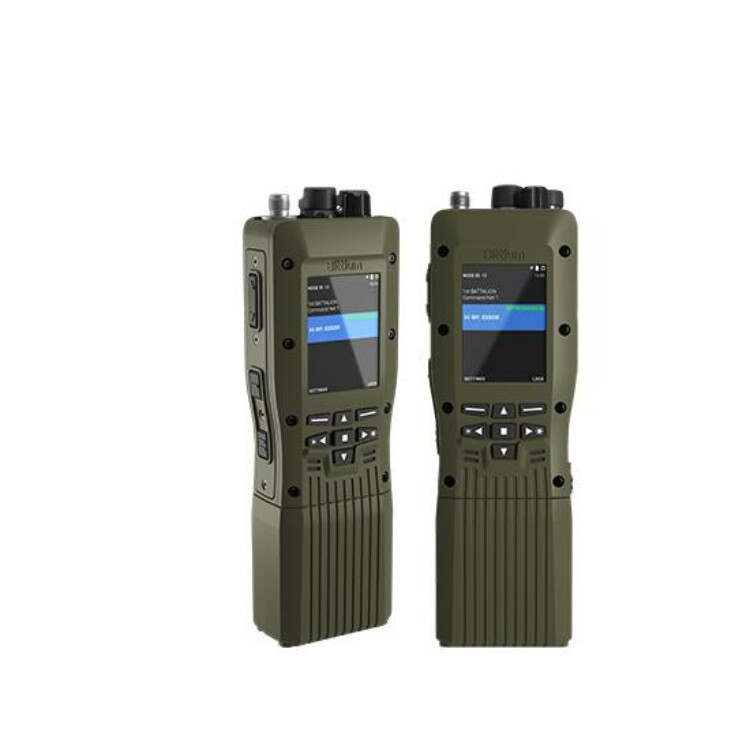
Next-Generation Soldier Radio
Bittium Tough SDR Handheld™ is a next-generation software-defined tactical radio for dismounted soldiers, such as squad or platoon leader. With the radio it is possible to bring broadband data, voice, and video to mobile troops across the battlefield.
The Tough SDR radios provide a uniquely wide range of frequencies, 30-2500 MHz without gaps, across several frequency bands. Together with flexible configuration options and routing networks, even thousands of radios in one network are supported.
With Tough SDR Handheld troops can communicate securely over narrowband and wideband waveforms, including the NATO standardized ESSOR High Data Rate Waveform for coalition operations. The radio can flexibly use the best performing waveform considering the conditions and the mission. The uniquely wide range of frequency bands improves combat survivability. Using several waveforms improves compatibility and enables operations on different levels and missions. Also legacy and national proprietary waveforms can be seamlessly ported to the radio with national COMSEC and TRANSEC.
Benefits
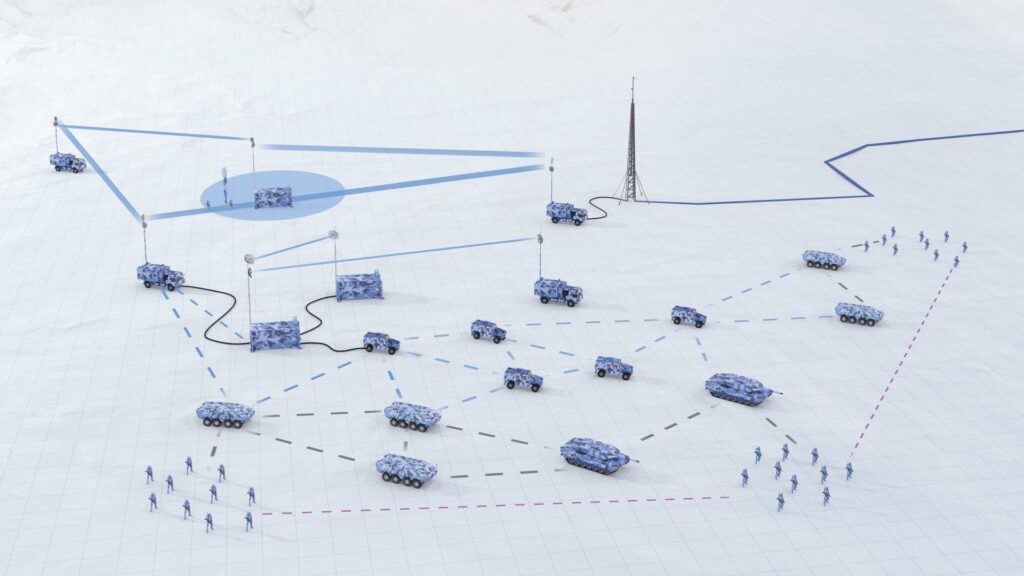
Connectivity Across the Battlefield
The Handheld radio is compatible with Bittium Tough SDR Vehicular™ radio and Bittium Tactical Wireless IP Network™ (TAC WIN) system, as well Bittium Tough VoIP™ solutions.
With the Tough SDR radios, TAC WIN system and related waveforms, it is possible to bring broadband data, voice, and video to all mobile troops from brigade to dismounted soldiers and from sensor to shooter without bottlenecks.
The networks and nodes can be managed with Bittium Tactical Network Management™ system. The intuitive and visual toolset is used for network planning, real-time management of the networks, and performance analysis based on big data collected from the network.
Seamless Interoperability
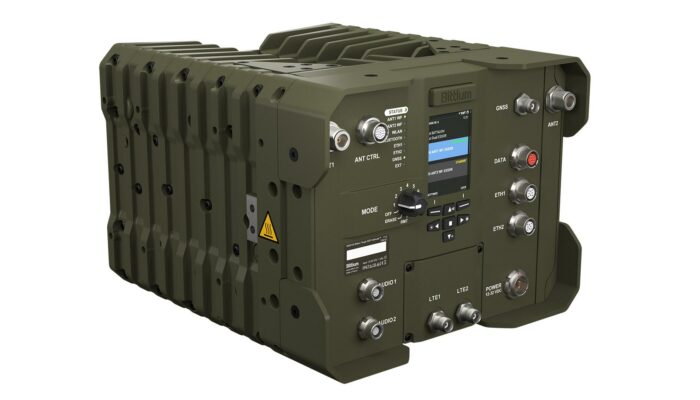
Bittium Tough SDR Vehicular™
Two-channel software-defined tactical radio for vehicle installations, part of the Tough SDR product family
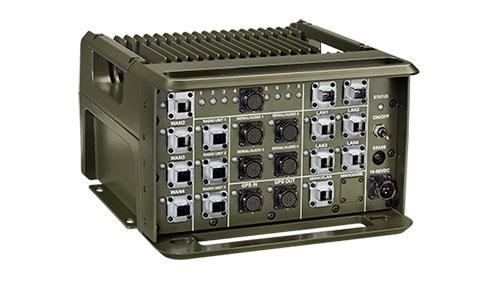
Bittium Tactical Wireless IP Network™
High-data-rate wireless IP network as a backbone to support command and control (C2)
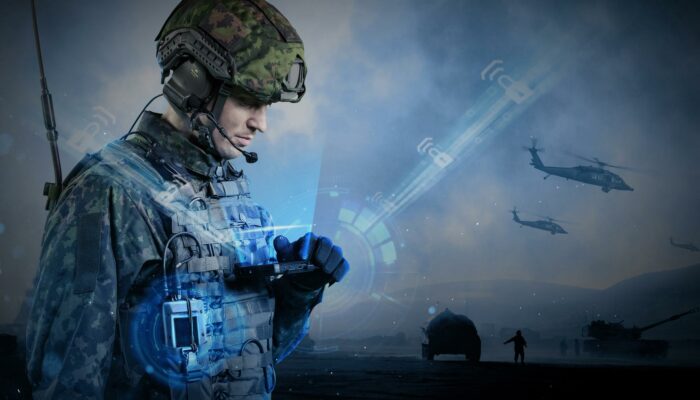
Bittium Tough Mobile™ 2 Tactical
Tough SDR Handheld radio combined with the secure Tough Mobile 2 smartphone forms the optimal mobile communication solution for the battlefield

Tactical Waveforms
Waveforms are at the core of high-level data performance, security and reliability of Bittium’s tactical systems and networks

Bittium Tactical Device Management™
Easy and secure management of tactical devices prior, during, and after deployment

Bittium Tactical Network Management™
Intuitive and visual system for managing tactical networks prior, during and after deployment
Waveforms
Bittium TAC WIN Waveform
- High-data-rate
- Frequency hopping, adaptive modulation, MANET routing
- Independent from GNSS using Bittium Air Interface Synchronization (AIS)
- Optimized interference cancellation algorithms
- Supported bandwidths: 5 / 10 / 20 MHz
- QoS based network radio resource management
Bittium Narrowband Waveform
- CNR waveform operating in VHF and UHF bands from 30 to 512 MHz with 50 kHz channel bandwidth
- No practical limit for number of nodes in the network
- Node mobility up to 130 km/h
- Frequency hopping
- COMSEC (AES256) for voice and data, TRANSEC to protect all radio transmissions including signaling
ESSOR High Data Rate Waveform
In addition to the Bittium’s proprietary waveforms, we provide ESSOR High Data Rate Waveform (EHDRWF) with Bittium Tough SDR radios. ESSOR High Data Rate Waveform is NATO STANAG 5651.
Bittium is a founding member in the a4ESSOR consortium that is responsible for the development of ESSOR waveforms as part of the ESSOR programme.
Key features
- Enables broadband data transfer, cooperation and direct communications between different national troops in coalition operations starting already from the patrol level
- Interoperable, secure, MANET radio transmission network
- Frequency range 225-400 MHz (extensible in Tough SDR)
- 1,25 MHz bandwidth, frequency hopping, frequency diversity (automatic establishment of parallel communications on different frequency channels)
About ESSOR
ESSOR, the European Secure Software Defined Radio Programme, is managed by OCCAR on behalf of Finland, France, Germany, Italy, Poland, and Spain. The ESSOR High Data Rata Waveform (HDRWF) is the most mature product in the ESSOR Programme’s portfolio. This encompasses two ground-centric waveforms (EHDRWF and ENBWF), one air-ground-air waveform (E3DWF), a feasibility study for a SATCOM waveform (ESATWF) and propaedeutic engineering activities for the development of a new generation Multifunctional Information Distribution System (ESSOR MIDS) for a tactical data link based on ESSOR architecture. The ESSOR Programme is co-funded by the European Commission through the EDIDP initiative.
Materials
Brochures & datasheets
Application notes
Videos
Articles
Latest news
- Bittium Received a Purchase Order from the Finnish Defence Forces for Next-Generation Bittium Tough SDR™ Handheld and Vehicular Radios
- Bittium Supplied NATO’s DIANA Test Centres with World-Class Tactical Communications Technology as Part of the Research Infrastructure
- Bittium Develops the Finnish Defence Forces a New IP Routing Protocol to Enable Very Large Networks for Tactical Communications
- NATO Adopted ESSOR High Data Rate Waveform as Interoperability Standard for Tactical Communications
Selected References

